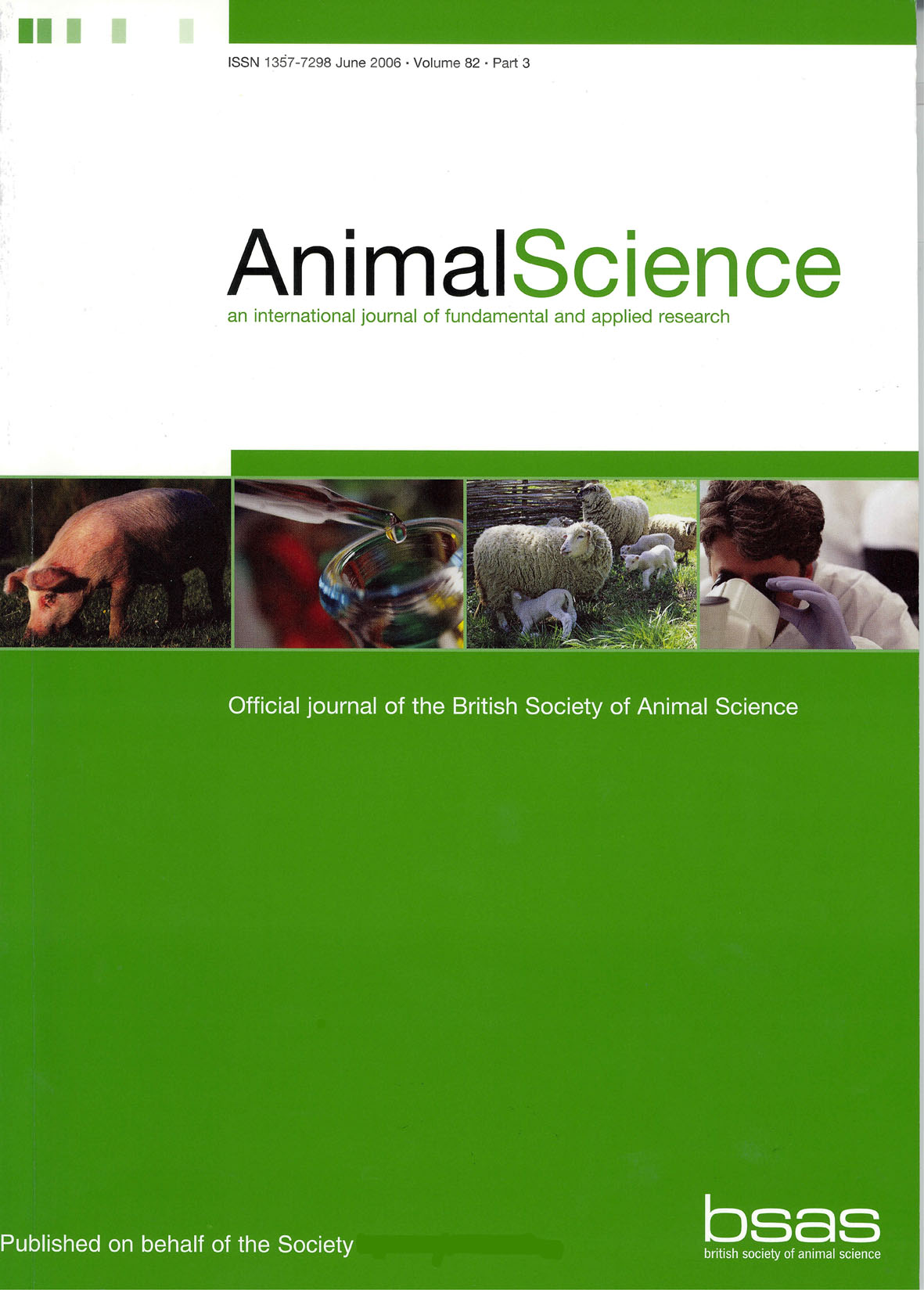Crossref Citations
This article has been cited by the following publications. This list is generated based on data provided by
Crossref.
Nieminen, M
1980.
Nutritional and seasonal effects on the haematology and blood chemistry in reindeer (Rangifer tarandus tarandus L.).
Comparative Biochemistry and Physiology Part A: Physiology,
Vol. 66,
Issue. 3,
p.
399.
Kent, J.E.
Chapman, D.I.
and
Chapman, N.G.
1980.
Serum constituents of red deer (Cervus elaphus).
Research in Veterinary Science,
Vol. 28,
Issue. 1,
p.
55.
Nieminen, M.
Koskela, M.
Leinonen, Maija
and
Timisjärvi, J.
1980.
Electrophoretical and immunoelectrophoretical studies on serum proteins in growing and fully-grown reindeer (Rangifer tarandus tarandus L.).
Comparative Biochemistry and Physiology Part B: Comparative Biochemistry,
Vol. 65,
Issue. 1,
p.
35.
Kay, R. N. B.
Sharman, G. A. M.
Hamilton, W. J.
Goodall, E. D.
Pennie, K.
and
Coutts, A. G. P.
1981.
Carcass characteristics of young red deer farmed on hill pasture.
The Journal of Agricultural Science,
Vol. 96,
Issue. 1,
p.
79.
Nieminen, Mauri
Ojutkangas, Virve
Timisjärvi, Jouni
and
Hissa, Raimo
1984.
Serum lipids, thyroxine and catecholamine levels in the reindeer with reference to the annual climatic cycle.
Comparative Biochemistry and Physiology Part A: Physiology,
Vol. 79,
Issue. 1,
p.
87.
Soveri, T.
Sankari, S.
and
Nieminen, M.
1992.
Blood chemistry of reindeer calves (Rangifer tarandus) during the winter season.
Comparative Biochemistry and Physiology Part A: Physiology,
Vol. 102,
Issue. 1,
p.
191.
Wiklund, E.
Andersson, A.
Malmfors, G.
and
Lundström, K.
1996.
Muscle glycogen levels and blood metabolites in reindeer (Rangifer tarandus tarandus L.) after transport and lairage.
Meat Science,
Vol. 42,
Issue. 2,
p.
133.
Säkkinen, H
Timisjärvi, J
Eloranta, E
Heiskari, U
Nieminen, M
and
Puukka, M
1999.
Nutrition-induced changes in blood chemical parameters of pregnant reindeer hinds (Rangifer tarandus tarandus).
Small Ruminant Research,
Vol. 32,
Issue. 3,
p.
211.
Åhman, B
Nilsson, A
Eloranta, E
and
Olsson, K
2002.
Wet Belly in Reindeer (Rangifer tarandus tarandus) in Relation to Body Condition, Body Temperature and Blood Constituents.
Acta Veterinaria Scandinavica,
Vol. 43,
Issue. 2,
Asikainen, J.
Mustonen, A.‐M.
Nieminen, P.
Pasanen, S.
Araja‐Matilainen, H.
and
Hyvärinen, H.
2002.
Reproduction of the raccoon dog (Nyctereutes procyonoides) after feeding or food deprivation in winter.
Journal of Animal Physiology and Animal Nutrition,
Vol. 86,
Issue. 11-12,
p.
367.
Wiklund, E.
Johansson, L.
and
Malmfors, G.
2003.
Sensory meat quality, ultimate pH values, blood parameters and carcass characteristics in reindeer (Rangifer tarandus tarandus L.) grazed on natural pastures or fed a commercial feed mixture.
Food Quality and Preference,
Vol. 14,
Issue. 7,
p.
573.
Orro, T.
Sankari, S.
Pudas, T.
Oksanen, A.
and
Soveri, T.
2004.
Acute phase response in reindeer after challenge with Escherichia coli endotoxin.
Comparative Immunology, Microbiology and Infectious Diseases,
Vol. 27,
Issue. 6,
p.
413.
Säkkinen, H.
Tornbeg, J.
Goddard, P.J.
Eloranta, E.
Ropstad, E.
and
Saarela, S.
2004.
The effect of blood sampling method on indicators of physiological stress in reindeer (Rangifer tarandus tarandus).
Domestic Animal Endocrinology,
Vol. 26,
Issue. 2,
p.
87.
Säkkinen, H.
Tornberg, J.
Goddard, P. J.
Eloranta, E.
Dahl, E.
Ropstad, E.
and
Saarela, S.
2005.
Adrenal responsiveness of reindeer (Rangifer tarandus tarandus) to intravenously administered ACTH.
Animal Science,
Vol. 81,
Issue. 3,
p.
399.
Mentaberre, Gregorio
López-Olvera, Jorge Ramón
Casas-Díaz, Encarnación
Fernández-Sirera, Laura
Marco, Ignasi
and
Lavín, Santiago
2010.
Effects of azaperone and haloperidol on the stress response of drive-net captured Iberian ibexes (Capra pyrenaica).
European Journal of Wildlife Research,
Vol. 56,
Issue. 5,
p.
757.
Mentaberre, Gregorio
López-Olvera, Jorge R.
Casas-Díaz, Encarnación
Bach-Raich, Ester
Marco, Ignasi
and
Lavín, Santiago
2010.
Use of haloperidol and azaperone for stress control in roe deer (Capreolus capreolus) captured by means of drive-nets.
Research in Veterinary Science,
Vol. 88,
Issue. 3,
p.
531.
Laaksonen, Sauli
Jokelainen, Pikka
Pusenius, Jyrki
and
Oksanen, Antti
2017.
Is transport distance correlated with animal welfare and carcass quality of reindeer (Rangifer tarandus tarandus)?.
Acta Veterinaria Scandinavica,
Vol. 59,
Issue. 1,


